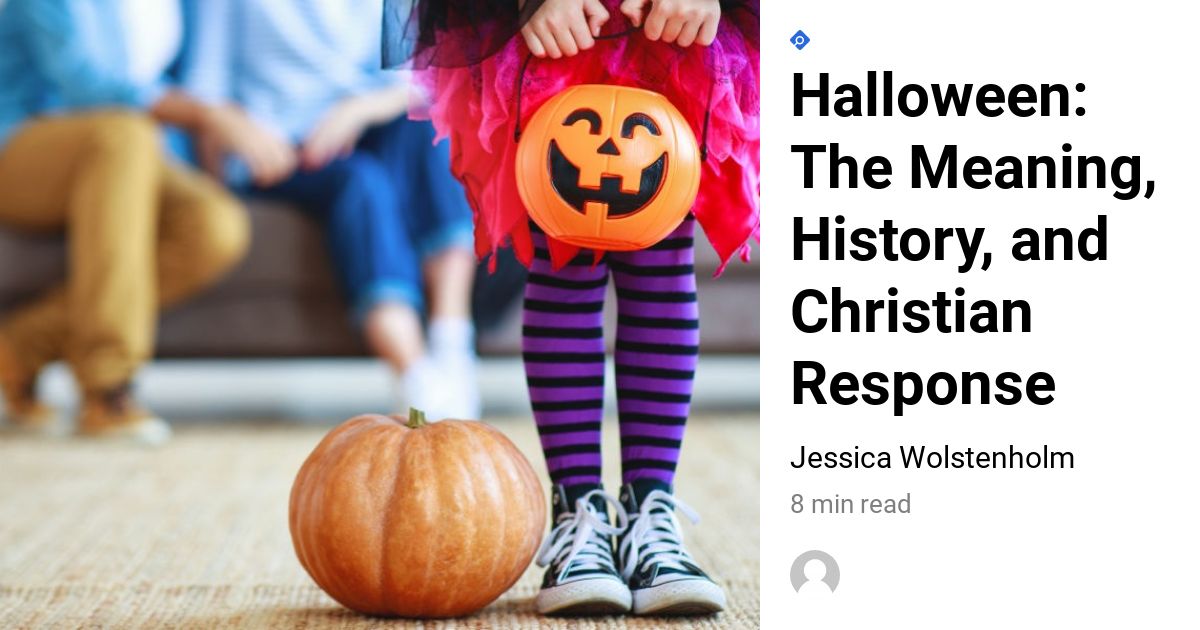Halloween: A Christian History
Related Articles: Halloween: A Christian History
- Halloween Day Parade 2024: A Spooktacular Extravaganza
- Halloween Dessert Recipes 2024: Spooktacular Treats To Delight And Frighten
- Disney Crocs 2024: Spooktacular Halloween Collection
- Halloween FX 2024: The Ultimate Guide To Spooktacular Special Effects
- Halloween Google Play 2024: Spooktacular Games, Movies, And Apps
Introduction
With enthusiasm, let’s navigate through the intriguing topic related to Halloween: A Christian History. Let’s weave interesting information and offer fresh perspectives to the readers.
Table of Content
Video about Halloween: A Christian History
Halloween: A Christian History

Introduction
Halloween, celebrated on October 31st, is a widely recognized holiday associated with costumes, candy, and festivities. However, its origins lie in ancient Celtic and Christian traditions that have evolved over centuries. This article delves into the Christian history of Halloween, exploring its roots, evolution, and the interplay between pagan and Christian beliefs.
Celtic Origins: Samhain
Halloween has its roots in the ancient Celtic festival of Samhain, celebrated on November 1st. The Celts, who inhabited parts of Europe, marked Samhain as the end of the harvest season and the beginning of winter. They believed that on this night, the boundary between the worlds of the living and the dead blurred, allowing spirits to cross over.
Christianization: All Saints’ Day and All Souls’ Day
In the 8th century, Pope Gregory IV designated November 1st as a day to honor all Christian saints, known as All Saints’ Day. This move was intended to Christianize the pagan festival of Samhain. The following day, November 2nd, became known as All Souls’ Day, a day of remembrance for the departed.
Hallows’ Eve
The night before All Saints’ Day came to be known as Hallows’ Eve, or Halloween. It was believed that on this night, spirits roamed freely, and people would dress up in costumes and masks to ward off evil spirits. The tradition of trick-or-treating is thought to have originated from this practice.
Medieval Beliefs and Customs
During the Middle Ages, Halloween became associated with witchcraft, sorcery, and the occult. People believed that witches and demons were particularly active on this night. As a result, many customs and rituals emerged to protect against evil spirits, such as carving pumpkins into jack-o’-lanterns and lighting bonfires.
Reformation and Protestantism
The Protestant Reformation in the 16th century led to a decline in the celebration of Halloween in some Protestant countries. Puritans in England and Scotland viewed it as a pagan festival and discouraged its observance. However, Halloween continued to be celebrated in many Catholic countries and parts of Europe.
19th and 20th Century Revivals
In the 19th and 20th centuries, Halloween experienced a revival in popularity, particularly in the United States. Irish immigrants brought their Halloween traditions to America, and the holiday gradually gained widespread acceptance. It became a time for costumes, candy, and festive gatherings.
Modern Halloween
Today, Halloween is a widely celebrated holiday around the world. While its origins may lie in ancient Celtic and Christian traditions, it has evolved into a secular celebration that focuses on fun and entertainment. Costumes, trick-or-treating, and themed parties have become synonymous with the holiday.
The Christian Perspective on Halloween
The Christian perspective on Halloween varies among denominations. Some Christian churches view it as a harmless celebration that can be enjoyed by all. Others see it as a pagan festival that conflicts with Christian beliefs. However, many Christians recognize the Christian roots of Halloween and seek to celebrate it in a way that honors both their faith and the traditions of the holiday.
Conclusion
Halloween is a holiday with a rich and complex history that spans centuries. Its origins in Celtic paganism were later intertwined with Christian traditions, resulting in the creation of Hallows’ Eve. While its modern-day celebration may emphasize secular aspects, Halloween’s Christian roots continue to shape its significance for many people. By understanding its historical evolution, we can appreciate the diverse origins of this beloved holiday.








Closure
Thus, we hope this article has provided valuable insights into Halloween: A Christian History. We appreciate your attention to our article. See you in our next article!